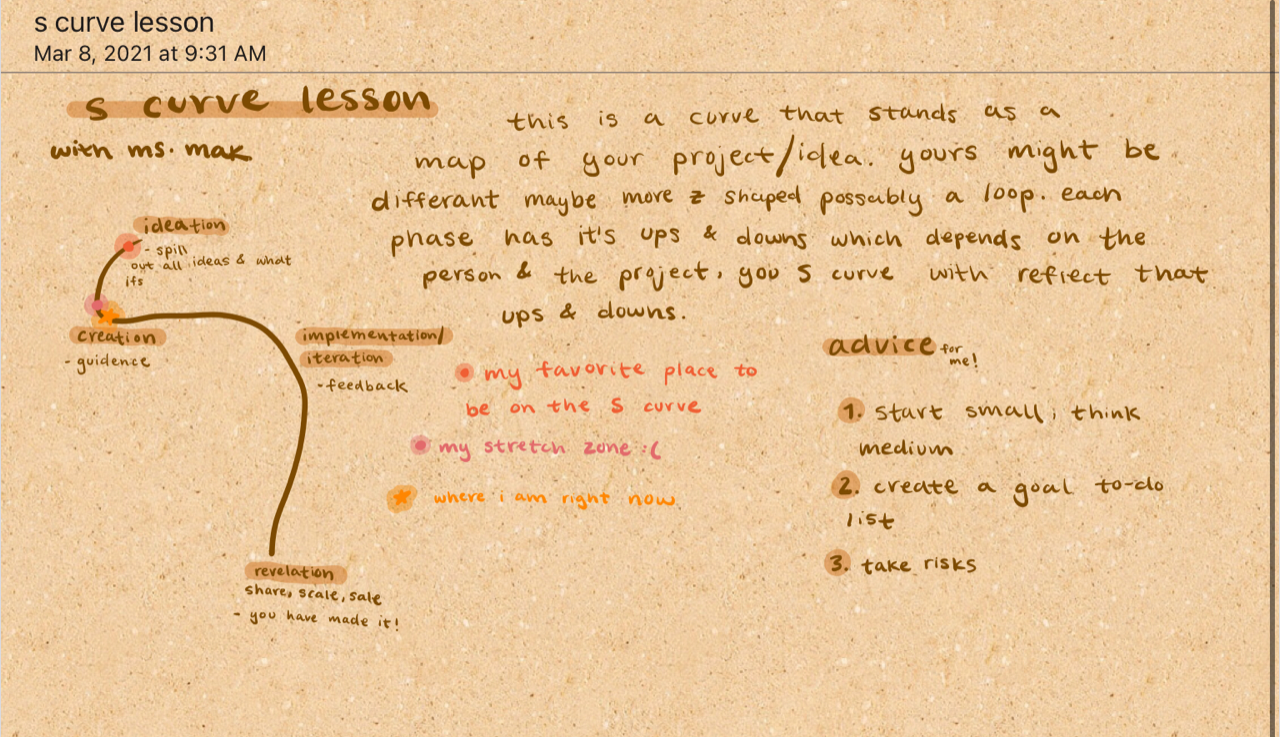One of the oft-cited mantras of the Scott Center for Social Entrepreneurship: “Big challenges present big opportunities for social entrepreneurs.” While there have been myriad new classes, programs, summer camps, and collaboration since the Scott Center was launched in 2017, it was this year, amidst all the challenges the pandemic posed that the ability for educators to fully embrace living and breathing an entrepreneurial mindset was truly put to the test. What started as a conversation about COVID-related scheduling challenges quickly turned into unprecedented opportunities to launch two new Scott Center classes, which solidified what we know to be such a unique aspect of a Hillbrook education: a transdisciplinary approach to intellectual rigor rooted in real-world problem solving, placing student voice and agency at the center of learning.
Just days before school started, two new classes were launched: Identity and Impact, which was a quarter elective for 6th-graders co-taught by Annie Makela, Director of the Scott Center, and Gulliver LaValle, Hillbrook’s Director of DEI; 8th-graders took on Social Impact and Leadership, a year-long core academic class co-taught by Matt Callahan, Associate Director of the Scott Center, and Eden Maisel, 8th Grade High School Counselor. These two classes, as we shared with students often, were an opportunity to practice what we preach: identify an idea and transform it into impact. As we all learned together, throughout one of the most challenging years any of us had ever known, the journey from idea to action is hard, meaningful work—as our students sought to change the world, they found themselves changing right along with it.
The year-long course, Social Impact and Leadership, prompted students to choose an issue important to them, and combine that with their passion, unique skill set, and a set of tools they wanted to use. With mentorship from faculty, staff, and community members, students brought these ideas to life over the course of a unique year, often using remote meeting tools to meet, brainstorm, and share their learning. One student, Summer, decided to use this year to create a short documentary about the wildfires in the Santa Cruz mountains, and the causes – namely climate change. She gathered footage from local news sources, and interviewed members of the community who were displaced by the fires, and those who fought the fires. Another student, Quinlan, created an impact venture called Love from the Snail, which aims to use hand-written letters and art to connect young people to seniors and others in isolation due to COVID or other reasons. After this experience, she even started a small graphic design business selling impact-related stickers and bags. The opportunity for students to cultivate a project, from idea to implementation and impact, resulted in a year of exponential growth—not just for the work of the Scott Center, but also for our students.
SIL and I+I were not turnkey programs that sterilize learning to fit neatly into a pre-packaged curriculum. These classes were raw, real, and mostly student-directed. The SIL curriculum integrates key components of the Scott Center social entrepreneurship program, including the use of the United Nations Sustainable Development goals and analytical models like the entrepreneurial S-curve, while also borrowing pieces from the framework Hillbrook had created for use with the 8th grade capstone project over the past five years. As such, it draws on and provides a real-world, authentic outlet for disciplinary learning (math, science, English, art, music, history).

At the culminating presentation of SIL – the Impact Summit – 55 students presented their projects in breakout rooms to an audience that reached over 200 folks via Zoom. Grandparents, siblings, mentors, coaches, and alumni were all able to tune in to see the amazing leadership of these young changemakers. Perhaps most profound was a reflection from a grandparent who took advantage of our commitment to making the Impact Summit inclusive for all by providing live interpretation into Spanish. Her daughter shared with us via e-mail after the summit: “you have no idea how meaningful this was for her and for Julian’s maternal grandfather… Julian’s grandparents live in Mexico City and most of the time they feel a bit disconnected [from] what happens at school regarding their grandkids. Having translation available made them part of the event to the point that grandma felt compelled to use the Zoom chat; moreover, this gave them the opportunity to discuss with Julian ‘what matters to him and what is he doing about it’. Julian’s paternal grandparents were visiting and had the opportunity to be part of the event too, so it was a fantastic family affair that we will never forget.”
We are so proud of the Class of 2021 for the enthusiasm with which they embraced this challenge, and the many things they accomplished over the course of the year. There is no doubt in our minds that social entrepreneurship education fosters both a critical skill set and an essential mindset for learner leaders as they enter high school, college, future jobs and engaged citizenship. Looking ahead, we are excited to build upon this promising foundation and, in true Hillbrook fashion, ask how we can make it even better.
**A special note to our readers: we are always in search of inspiring mentors and coaches, and Zoom/hybrid learning has allowed for students to connect with the Hillbrook community both near and far. If you are interested in playing the role of mentor or coach for future SIL projects please reach out to us at [email protected] so we can chat more about this exciting and often mutually beneficial opportunity.

